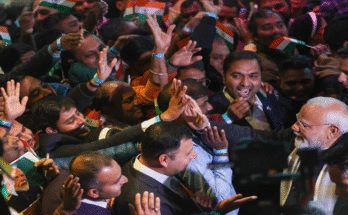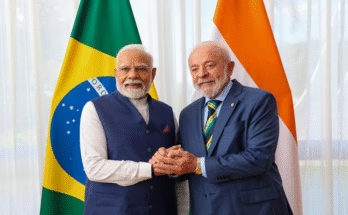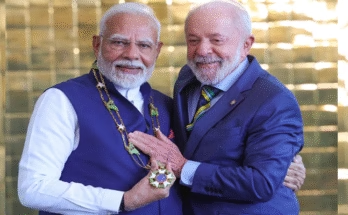
New Delhi: In a high-level cabinet meeting on Wednesday, Prime Minister Narendra Modi lauded Operation Sindoor as a “perfect strike”, emphasizing its success as a precise and deliberate response to the April 22 Pahalgam terror attack, which claimed the lives of 26 civilians, primarily Hindu tourists.
Describing the mission as swift, accurate, and strategically flawless, the Prime Minister commended the armed forces for their seamless execution. “There were no mistakes whatsoever,” Modi stated, underlining the operation’s effectiveness in neutralizing the infrastructure of cross-border terrorism embedded within Pakistan and Pakistan-occupied Kashmir (PoK).
“This is a moment of pride for all of us,” the Prime Minister told the cabinet, noting that the strikes specifically targeted nine terror hubs—four located in Pakistan’s Punjab province and five in PoK—used by groups like Lashkar-e-Taiba and Jaish-e-Mohammed to coordinate attacks on India.
Operation Sindoor
The tri-service operation, conducted jointly by the Army, Navy, and Air Force, unfolded over 25 minutes between 1:05 and 1:30 AM. Indian forces launched 24 missile strikes on nine terrorist hubs, resulting in the elimination of over 70 terrorists, according to official sources. The camps were linked to groups such as Lashkar-e-Taiba (LeT) and Jaish-e-Mohammed (JeM).
Among those reported killed were ten family members of UN-designated terrorist Masood Azhar, including his sister and brother-in-law. A purported statement by Azhar, circulating on social media, confirms the deaths.
Colonel Sofia Qureshi and Wing Commander Vyomika Singh, speaking at a press briefing, underlined that no military or civilian installations were targeted. They explained that nine locations across PoK and Pakistan had long served as bases for recruitment, indoctrination, training, and launch operations against India.
Foreign Secretary Vikram Misri said the operation was a “measured and non-escalatory” response. “The Pahalgam massacre was marked by extreme barbarity. Tourists were shot in the head, in front of their families. It was a clear attempt to destabilize Kashmir’s return to normalcy,” he stated. Misri also highlighted the involvement of the Resistance Front (TRF), a proxy of Lashkar-e-Taiba, in the attack, and called out Pakistan’s efforts to suppress references to TRF in UN documents.
Intelligence inputs had warned of more imminent attacks, pushing India to pre-empt and dismantle the operational core of cross-border terror. Misri called it “the most serious terror incident since the 2008 Mumbai attacks” involving mass civilian casualties.
Families of Pahalgam Victims Welcome Operation Sindoor
The families of victims have welcomed the action with a mix of relief and emotional closure.
Rajesh Narwal, father of Navy Lieutenant Vinay Narwal, said: “Naming it Operation Sindoor is absolutely right. The terrorists asked the victims’ religion before killing them. This is justice for our daughters and sisters.”
Sumathi, mother of Manjunath Rao from Shivamogga, expressed satisfaction: “Manjunath will not return, but our family has found peace. The Army has responded at the right time and in the right way.”
In Kochi, Arathi Menon, daughter of N. Ramachandran, said: “Sindoor represents Indian women. This operation is their answer to terrorism, carried out through the Army and the government.”
Sanjay Dwivedi, father of Shubham Dwivedi, said his entire family felt a weight lifted: “They heard the pain of the country. Terrorism rooted in Pakistan has been crushed.”
PM Modi Postpones Foreign Visit
In the wake of the operation, Prime Minister Modi postponed his scheduled visits to Croatia, Norway, and the Netherlands, a decision signaling the seriousness with which India views national security at this moment.
Operation Sindoor, while a tactical strike, also marks a strategic shift in India’s counter-terror posture, demonstrating readiness to act decisively against trans-border threats



